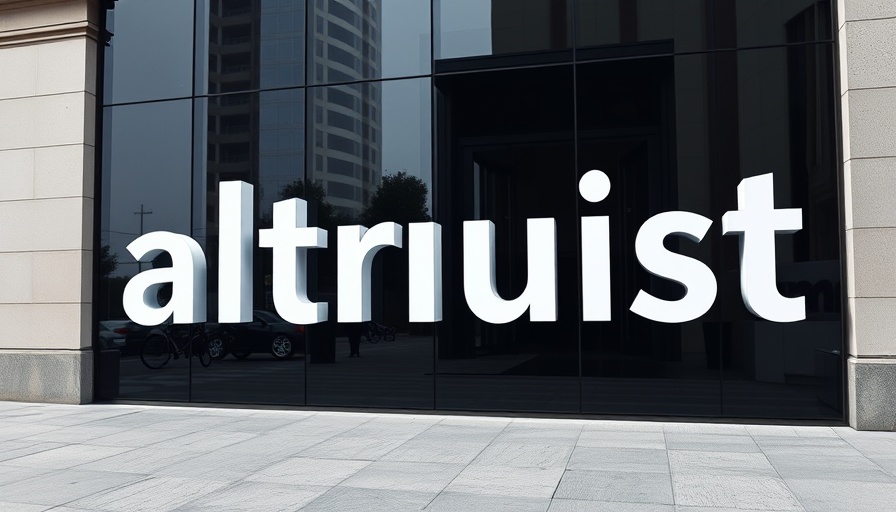
Altruist's Bold Step Forward: A New Brand Identity
Altruist, a disruptor in the RIA custodian space since its inception in 2018, has recently revealed a significant rebranding initiative that is aimed at redefining its identity in the financial advisory ecosystem. This overhaul is not merely cosmetic; it represents a statement meant to stand out in a crowded market often characterized by outdated and uninspiring design elements.
What the Rebrand Entails
The rebranding includes an updated logo, a fresh color palette, and a modern typography schema that intends to project clarity and professionalism. The Chief Creative Director, Daniel Haire, succinctly captured the essence of the overhaul by emphasizing that it is a departure from both the antiquated aesthetics of traditional custodians and the sleek yet impersonal feel of many fintech competitors. In Haire's words, the rebrand embodies a narrative-driven design that seamlessly integrates bold visuals with clean data presentation.
Funding as a Catalyst for Innovation
Altruist's rebrand comes on the heels of its impressive $152 million Series F funding round, which valued the company at $1.9 billion. These considerable financial resources will be pivotal in nurturing the development of new tools and technologies aimed at bolstering financial planning. Since last year, the company has rolled out various features, including automated tax management tools and a high-yield cash account, further solidifying its commitment to innovation that speaks to the needs of modern advisors.
Industry Perspective on Altruist's Approach
Altruist's focus on user experience is an essential component of its strategy. Given the frustrations many advisors face with legacy systems, this fresh approach is more than welcome. In a period where transparency and usability are critical to retaining clients, Altruist’s modern interface and feature set could serve as a blueprint for other custodians to follow. This emphasis on clean design and efficient functionality resonates particularly well with young, tech-savvy advisors who demand efficiency and clarity in their tools.
Implications for Financial Planning Professionals
For financial planners and wealth advisors, the implications of Altruist's rebranding are significant. The company's commitment to breaking from tradition and focusing on innovation reflects broader trends within the financial advisory industry. Advisors are increasingly leveraging technology to enhance client experiences while seeking out custodians that prioritize responsive service and modern functionality. Altruist's ambitious vision positions it well to cater to these evolving needs, empowering financial professionals to deliver value through streamlined operations.
Conclusion: A Call to Embrace Change
As Altruist sets a new standard for custodianship in financial planning, it serves as a potent reminder for industry players—evolution is not merely an option, but a necessity. Advisors should keep a close eye on Altruist's advancements not only as clients but also as potential partners in innovation. The rebranding signifies a shift in how custodians can operate effectively in a dynamic market, and advisors can benefit by adapting similar strategies for their practice. Change is inevitable; embrace it to stay ahead.
 Add Row
Add Row  Add
Add 




Write A Comment